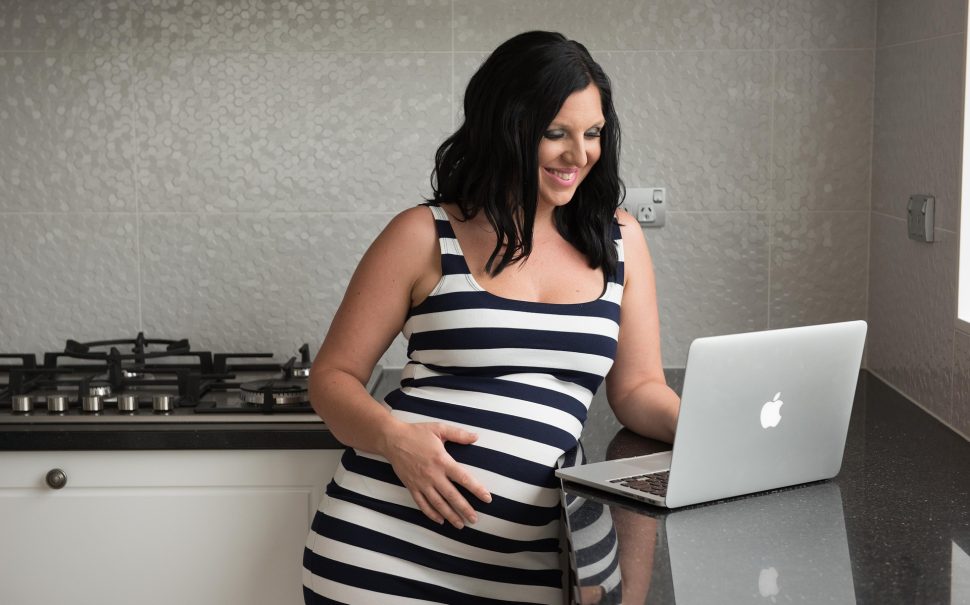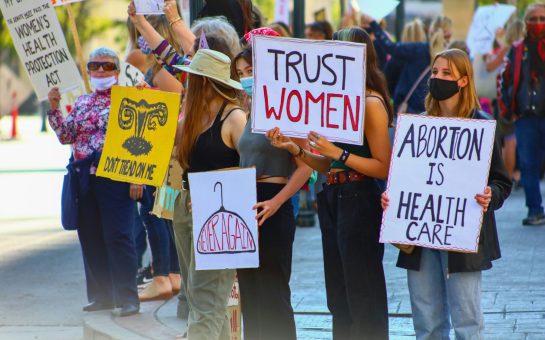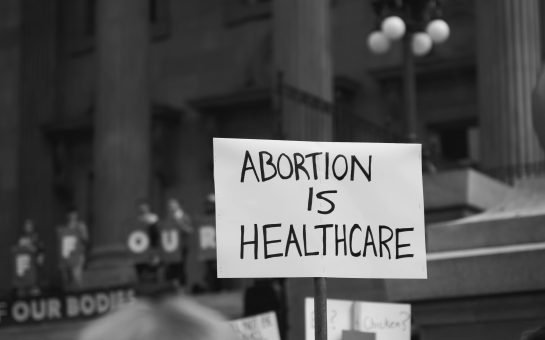Great Britain
Universally abortion has been regarded as a taboo topic for a tale as long as time although the reasons for whydo differ across the globe.
Great Britain is deemed more progressionist where women’s rights have been concerned with liberal abortion laws being at the forefront of this.
The Abortion Law was introduced in 1967 after Scottish Liberal Democrat David Steel created the bill which changed the way Great Britain handles abortions.
After much heated and political debate within parliament the bill came into effect in April of 1968 – this meant women could now access abortions under the NHS up to 24 weeks gestation.
A veteran women’s campaigner Diane Munday told The Independent: “In the 1960s, it was the best we could get. But the laws should have been changed sooner. 50 years ago if anyone had told me that I’d still be campaigning now I’d say they were stupid.”
Before The Abortion act was introduced the 1929 Infant (Preservation) Act was in place – this act only allowed women to access an abortion if by the mother carrying her child full term it would mean she would be a ‘mental or physical wreck’.
The Abortion Act meant women now had more control over their reproductive health and no longer had to meet strict criteria in order to get an abortion.
By abortion services being more accessible under the NHS this meant that unlike before women no longer had to break the law or risk their health by having a criminal abortion also known as a ‘backstreet abortion.’
When David Steel debated for more liberal abortion laws in the House of Commons one of his main arguments to support his bill was the eradication of ‘backstreet abortions’ which posed such a huge threat to women’s health.
David Steel said, in a House of Commons debate in 1967: “We want to stamp out the back-street abortions, but it is not the intention of the Promoters of the Bill to leave a wide-open door for abortion on request….We have to avoid in the Bill wording which is so restrictive as not to have the effect which we are seeking – namely, the ending of the back-street abortions.”
Prior to the introduction of The Abortion Bill abortion could only be obtained privately as it was not yet offered under the NHS.
As a result women from low income households were put at a clear disadvantage, forcing many to go down the criminal route.
Mary Sharps, from Droylsden, Manchester was a victim of poverty when she became pregnant in 1963.
At just 15 years of age with a huge taboo surrounding not just sex outside of marriage but also abortion
Sharps, coming from an Irish catholic background she was terrified – after taking advice from a local nun.
Sharps herself had a ‘backstreet abortion’ an experience she has dubbed ‘traumatic’.
Sharps said “At just fifteen I had no one I could turn to. It was the ‘60s people weren’t as understanding back then. I think many young girls now would go to their mum and console themselves but I would have had my stuff packed and the slipper”.
“The abortion itself I remember to be very painful, I remember a lot of blood. We had all heard the horror stories of haemorrhages and god knows what else but the truth is you were more scared of what people would say if they found out.”
Mary’s experience not only highlights how important the introduction of the Abortion Act was to allow more accessible and confidential abortion care but how important this act has been in breaking down the taboo and liberalising the conversation over time.
In the 1960s at least 9% of the population lived in poverty and a further 28% on the poverty line meaning for many private health care just simply was not feasible.
Furthermore it is estimated that at least 110,000 women got abortions annually before the introduction of the act.
Around 40 percent of these abortions were criminal according to the Abortion Law Reform Association – meaning at least 44,000 women opted for backstreet abortions per year.
However after 1967 the number of criminal abortions decreased dramatically and over fifty years on the numbers still remain low with just 40 criminal abortions being recorded in 2021 according to data from the Home Office.
Accessible abortion care has meant that many no longer feel forced to risk haemorrhages, sepsis and even death by getting a criminal abortion.
In 2020 the whole world faced unprecedented circumstances when Covid-19 hit and most countries were forced to go into lockdown for long periods of time.
As the virus spread the message given to all was to ‘stay indoors’ which put abortion services in a pressurised position due to restrictions.
In March 2020 the Department of Health and Social Care announced that medical abortions (also known as the abortion pill) would be authorised for pregnancies up to 9 weeks and 6 days without women having an in person consultation beforehand.
The two ‘abortion pills’ were posted to the patient after a telephone consultation – this more relaxed approach was applauded by many within the pandemic.
Initially this contingency plan was only to last two years, until the clinics could operate as before the pandemic.
Although it has now been extended permanently amid pressure from many that applauded this method that puts ‘less pressure’ on the already stressful decision.
As lockdown struck, Charlotte Smith, who was in a long-term relationship with her boyfriend, found out she was pregnant. Although it was a daunting experience, Charlotte found the process physically ‘not so bad’, but said mentally the process took its toll.
Smith said: “Being alone and away from your partner when the situation you are trying to navigate yourself through is so hard. It is by no doubt one of the hardest things I can say to date I have experienced and I think I ever will have to.”
‘I received my small package and I remember staring at a blister pack of two tablets and guilt set in. You start to question your own morality and whether you’re doing the right thing. The hardest part is once you swallow(the pill) the feeling is uneasy. You’re aware it is the right thing to do but it goes unsaid it is the hardest decision any woman can make. Although I was alone I’d rather have been on my sofa crying than in a clinic”
Although The Abortion Act is relatively liberal the act does have limitations; one being to purchase an abortion pill is punishable by life imprisonment due to a law from 1861.
If pharmacists were authorised to distribute the at home abortion pill this would be majorly beneficial to women the intimidating rigmarole of going to the clinic would no longer be required and the women would be able to be supported by the pharmacist.
Currently two doctors need to make a mutual agreement that the abortion is necessary for the baby or mother.
This responsibility should be put into the hands of the nurses that deal with the patient’s procedure from start to finish alongside said Katherine O’Brien from BPAS.
If the act was updated in this way this would allow the women to cultivate a relationship with the nurse where they feel as though they can voice any troubles they are having throughout the testing process by having a psychotherapist on hand to ensure the woman has mental support throughout the transition.
Northern Ireland
Despite being part of Great Britain, Northern Ireland has not always been as liberal as their counterparts across the sea where abortion laws have been regarded.
In 2019 Northern Ireland decriminalised abortion and extended the 1967 Abortion Act after four decades of refusal.
This meant that women in Northern Ireland could now get an abortion up to 11 weeks and 6 days (12 weeks) gestation, which was a huge improvement from the legislation in place prior.
Abortions after 12 weeks are lawful however only under specific circumstances such as severe foetal
impairment and fatal foetal abnormalities up to 24 weeks gestation.
Previously women were not permitted to get an abortion under Stormont law unless there would be a “threat to the mothers life” or they would be deemed a “mental or physical wreck”.
Northern Ireland is traditionally a catholic state with 88% of the population claiming to be catholic according to the 2011 census.
Famously Catholics follow a pro-life stance therefore many across Northern Ireland share the same ideology.
Donum Vitae which addresses the respect for human life from a Roman Catholic perspective says “human life is sacred because it’s the beginning… no one can under any circumstance claim for himself the right to directly destroy an innocent human being” (Donum Vitae,5)
Catholics believe that all life is sacred from conception and by taking the life of an innocent human life
whether born or unborn this is going against God’s will hence why Northern Ireland have stood strong on their pro-life stance for so long.
Northern Ireland have been in hot water a number of times for their refusal to introduce a more flexible
abortion law, even receiving pressure from Westminster.
In January 2019 Sarah Ewart began her campaign for more relaxed abortion bringing the adgenda back into the spotlight.
Ewart was elated when she fell pregnant in 2013 with her first child, Ella, although the joy did not last long – on her 20 week scan it was found the foetus was suffering with a rare condition called anencephaly.
Anencephaly is a serious birth defect in which the baby is born without parts of their brain and
skull and therefore will suffer major complications throughout their lifetime, in some
circumstances the child could die.
After finding out this news Ewart decided she wanted to terminate her pregnancy however
despite being told her child would not survive outside of the womb Ewart was refused an
abortion as there was no risk to her life.
Doctors told her that she would either have to wait to miscarry or cross the water into England to
terminate the pregnancy.
After being turned away at every option Ewart travelled to London at 21 weeks pregnant for her
termination which she describes as an “awful experience.”
This horrific experience she endured pushed her on to face the campaign which subsequently
changed Northern Irish abortion law – although she dismisses herself as a campaigner and
says she merely spoke out against poor treatment.
Ewart told BBC News: “Because I was a voice that spoke out I’ve become known as a
campaigner – I do not think I’m a campaigner.”
As the campaign battled on, it was ruled by the High Court that Northern Ireland was breaching
human rights by not permitting women to terminate pregnancies, using Ewarts ordeal as the
focal point throughout.
Many women around Northern Ireland at this point deemed this as a monumental moment
within the campaign.
Although on the flip side many disagreed with this ruling and protested outside of the high court
with banners reading ‘Those who test god’s will will suffer’ and others reading ‘abortion is
murder.’
Members of the pro-life campaign group Precious Life protested outside.
The Director for Precious Life, Bernie Smith told BBC News: “It’s a very sad day that the court
has denied the right to life for unborn children.”
Since 2019 Northern Ireland has allowed women to get abortions more freely although this
service to this day is not accessible.
Hundreds of women travel to England, without financial help, to get an abortion due to these
services not yet being commissioned in their own country despite the Abortion Act being
extended for over 4 years.
This limitation in Northern Ireland has caught the eye of Westminster after the initial deadline to
commission abortion services in March 2022 was missed due to ‘political disagreement’.
Secretary of State at the time, Brandon Lewis, pressured the Northern Irish government and
made it clear he would not fear to use his own powers if it was revealed the Department of
Health were not complying – however he has since resigned and pressure has lessened.
In a written statement, he said: “Two years after the Abortion (Northern Ireland) 2020
Regulations established the framework for abortion services, women and girls are still unable to
access high-quality abortion and post-abortion care in Northern Ireland.”
As of right now abortion services have still not been commissioned in Northern Ireland however
Westminster are putting increasing amounts of pressure on The Department of Health to make
abortion more accessible for all.
United States of America
In the last year a conversation on abortion simply cannot be had without mentioning the Roe V
Wade overturn that shocked the world.
June 24 2022 America’s abortion laws became stricter as the US Senate announced that there
was no longer a constitutional right to abortion in the United States.
Abortion laws were now left up to each individual state to decide their own take on reproductive
health, which welcomed many states to impose restrictions or bans altogether.
A year and a half on from the Roe v Wade overturn 13 of the 50 states have made abortion
illegal, meaning under no circumstances a woman is allowed an abortion.
Fifty years of abortion rights that protected the 14th amendment were abolished immediately.
Roe v. Wade has been upheld in the United States since 1973 when two law graduates, Sarah
Waddington and Linda Coffee, lodged a lawsuit opposing the Texas abortion laws.
Jane Roe, was an alias name for 21 year-old single pregnant woman named Norma McCorvey
who after falling pregnant for the third time wanted to terminate her pregnancy although under
conservative Texas law this was not an option.
Pregnant, single and jobless McCorvey was inconsolable when she found out she had fallen
pregnant again, after previously putting another child up for adoption this is not an avenue she
wished to venture down again therefore was adamant she wanted an abortion.
Under most circumstances abortion in Texas was not permitted unless carrying out the
pregnancy would result in the mothers death.
McCorvey was put into contact with Sarah Waddingham and Linda Coffee, two law graduates
who wanted to oppose the state’s abortion laws and together they led the lawsuit that introduced
the 14th amendment.
Waddingham and Coffee filed Roe V. Wade in the U.S. District Court for the Northern District of
Texas, against district attorney Henry Wade, on behalf of McCorvey.
After a month of hearings the court ruled 7-2 in McCorvey’s favour meaning that across America
under the 14th amendment women had a constitutional “right to privacy” protecting a pregnant
woman’s right to an abortion.
The overturn sent shockwaves around America with even President Joe Biden slamming the
congress decision.
In a statement published on the White House website Joe Biden released a statement: “women
should be able to make these deeply personal decisions free from political interference. Yet,
Republicans in Congress and across the country continue to push for a national abortion ban, to
criminalise doctors and nurses, and to make conception harder to access. It’s dangerous,
extreme, and out of touch.I’ll continue to fight to protect a woman’s right to choose.”
Not only did the President criticise congress decision to overturn abortion laws but many
celebrities also voiced their opinions.
Singer and actress Selena Gomez, 30, voiced her opinions on the overturn on her social media:
“Watching a Constitutional right be stripped away is horrific. A woman should have the right to
CHOOSE what she wants to do with her own body. End of story.”
Male rapper Kendrick Lamar used his Glastonbury debut in June 2022 to voice his own opinion towards the end of his 90 minute set Lamar repeatedly said “They judge me; they judge Christ.
Godspeed for women’s rights.”
Protests took place around the world from London to Washington as thousands gathered to
oppose congress overturn – 200 marches took place across America alone.
Today the overturn still stands and women’s abortion rights still very much hang in the balance.
As a result of the decision states that have kept abortion legal for women in their state have
become overwhelmed with the demand after out of state residents have crowded the clinics.
A clinic in Illinois claims that since the overturn they’re operating on three week wait times and
86% of their patients have come from outside the state.
There is a fear from many that criminal abortions may rise as many women will be left with no
choice but to either cross state lines or risk an illegal abortion.
Although there is no date to suggest this has or will happen many still voice their concerns.




